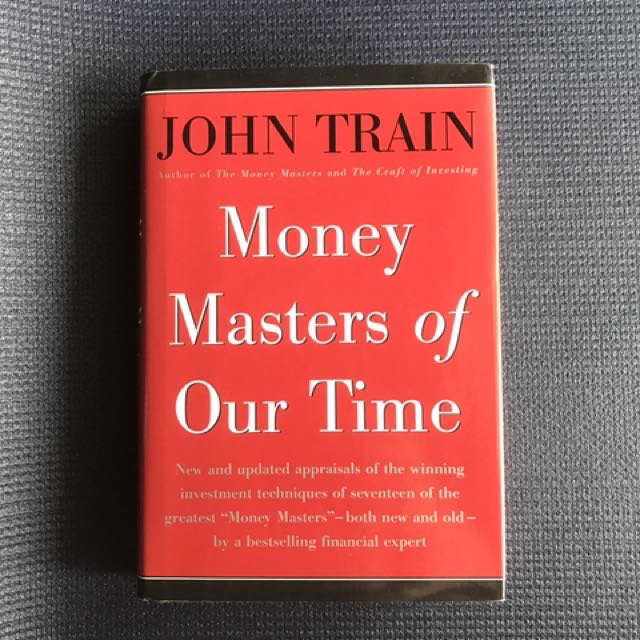
T. Rowe Price:
• Seek "fertile fields of growth" then hold stocks forever
• Early stage of growth most profitable / least risky
• Want superior R&D, lack of competition, immunity from regulation, low labour costs, >10% ROIC
• Red flags: new weak mgmt, saturation, falling ROIC
• Seek "fertile fields of growth" then hold stocks forever
• Early stage of growth most profitable / least risky
• Want superior R&D, lack of competition, immunity from regulation, low labour costs, >10% ROIC
• Red flags: new weak mgmt, saturation, falling ROIC

Warren Buffett:
• Key is business franchise: whether competitors can squeeze prices and profits
• Wants high ROIC, understandable, see profits in cash, can raise prices, simple to run, not targets of regulation, owner-oriented
• Best business = royalty on growth of others
• Key is business franchise: whether competitors can squeeze prices and profits
• Wants high ROIC, understandable, see profits in cash, can raise prices, simple to run, not targets of regulation, owner-oriented
• Best business = royalty on growth of others

John Templeton:
• Compared similar stocks across markets
• Small company / fat margins / low PE = safe
• Find bargains in neglected areas
• Pay attention to P/E, margin, liquidation value, growth rate
• Ask: "Which of your competitor would you want to invest in and why?"
• Compared similar stocks across markets
• Small company / fat margins / low PE = safe
• Find bargains in neglected areas
• Pay attention to P/E, margin, liquidation value, growth rate
• Ask: "Which of your competitor would you want to invest in and why?"

Richard Rainwater:
• Target industry due for a change
• Find particularly attractive company within it
• Long-term sustainable competitive advantage
• Find a world-class manager to run the show
• Get knowledgeable investment partners
• Financial engineering to boost returns
• Target industry due for a change
• Find particularly attractive company within it
• Long-term sustainable competitive advantage
• Find a world-class manager to run the show
• Get knowledgeable investment partners
• Financial engineering to boost returns

Paul Cabot:
• "First get all the facts... then you've got to face the facts"
• Management needs to be able and honest
• Industry that's prosperous and really needed
• Watch out for inflation
• "First get all the facts... then you've got to face the facts"
• Management needs to be able and honest
• Industry that's prosperous and really needed
• Watch out for inflation

Philip Fisher:
• Don't trade in and out: stay with winners
• Scuttlebutt: go to 5x companies, ask about the others
• Attractive business: growth from existing + new proprietary products, high-profit margin / ROIC, leading position, great R&D, superior sales, LT orientation
• Don't trade in and out: stay with winners
• Scuttlebutt: go to 5x companies, ask about the others
• Attractive business: growth from existing + new proprietary products, high-profit margin / ROIC, leading position, great R&D, superior sales, LT orientation

Benjamin Graham:
• Knew how to say "no"
• Buy dollar for fifty cents over and over again
• Broad diversification
• Wanted method that was entirely quantifiable
• Techniques: < net current assets, liquidation plays, risk arbitrage, convertible hedge, activism, pair trades
• Knew how to say "no"
• Buy dollar for fifty cents over and over again
• Broad diversification
• Wanted method that was entirely quantifiable
• Techniques: < net current assets, liquidation plays, risk arbitrage, convertible hedge, activism, pair trades

Mark Lightbown:
• EM investor
• Read local newspapers
• Wants business requiring no incremental cash to grow
• Countries: Agent of change in a country must come from within political party, focused on savings, high education, capital movement, small easier to manage
• EM investor
• Read local newspapers
• Wants business requiring no incremental cash to grow
• Countries: Agent of change in a country must come from within political party, focused on savings, high education, capital movement, small easier to manage
John Neff:
• Buy stock when cheap and acting badly
• High concentration in a few industry groups
• Key criteria: sound balance sheet, satisfactory cash flows, high ROE, able management, growth prospects, attractive product, strong mkt
• Rank by (EPS growth + div yield) / PE
• Buy stock when cheap and acting badly
• High concentration in a few industry groups
• Key criteria: sound balance sheet, satisfactory cash flows, high ROE, able management, growth prospects, attractive product, strong mkt
• Rank by (EPS growth + div yield) / PE

Julian Robertson:
• Gave full credit to members
• Want management dedication to the bottom line
• Determine 2-3 key variables then go deep on those
• Seven criteria: wonderful management, monopoly, great value, favourable regulation, upstream co's, growth, big core positions
• Gave full credit to members
• Want management dedication to the bottom line
• Determine 2-3 key variables then go deep on those
• Seven criteria: wonderful management, monopoly, great value, favourable regulation, upstream co's, growth, big core positions

Jim Rogers:
• Why things are cheap + reasons why that may change?
• Disasters offer an opportunity
• Shorting popular industries
• Bet on new industry trends
• Focus on supply & demand in every industry
• Insider transactions offer clues
• Why things are cheap + reasons why that may change?
• Disasters offer an opportunity
• Shorting popular industries
• Bet on new industry trends
• Focus on supply & demand in every industry
• Insider transactions offer clues

George Soros:
• Capital of fund kept in stocks, while commodities & currencies on leverage
• Buy only after stock has survived difficult test
• Don't read sell-side research
• Start small, if things work out: add
• Perception changes events, which change perception
• Capital of fund kept in stocks, while commodities & currencies on leverage
• Buy only after stock has survived difficult test
• Don't read sell-side research
• Start small, if things work out: add
• Perception changes events, which change perception

Philip Carret:
• Liked OTC stocks
• Avoid fads & concept stocks
• Yield is most important factor of any stock
• Quick to take losses, reluctant to take profits
• Seek facts, not advice
• Company debt is fine but avoid margin debt
• Long-term options on promising companies
• Liked OTC stocks
• Avoid fads & concept stocks
• Yield is most important factor of any stock
• Quick to take losses, reluctant to take profits
• Seek facts, not advice
• Company debt is fine but avoid margin debt
• Long-term options on promising companies

Michael Steinhardt:
• Analyse on long-term basis, but trade short-term
• Key question: "What will change?"
• Latitude to ideas that are working. Otherwise question constantly.
• Longs: low-multiple dull stocks
• Shorts: best-companies in America, areas of speculative focus
• Analyse on long-term basis, but trade short-term
• Key question: "What will change?"
• Latitude to ideas that are working. Otherwise question constantly.
• Longs: low-multiple dull stocks
• Shorts: best-companies in America, areas of speculative focus

Ralph Wanger:
• Good small companies
• Identify major trend, then buy companies that will benefit from the trend
• Either growing market, good design, efficient manufacturing, sound marketing and healthy profit margins
• Strong balance sheet
• Attractive price
• Good small companies
• Identify major trend, then buy companies that will benefit from the trend
• Either growing market, good design, efficient manufacturing, sound marketing and healthy profit margins
• Strong balance sheet
• Attractive price

Robert Wilson:
• Buy companies doing something new and different
• Unless there is fear in a stock - not much potential left
• Play the surprises
• Don't predict; observe
• Look forward to pleasant surprises
• Seek uncommon insights
• Trends go longer than people expect
• Buy companies doing something new and different
• Unless there is fear in a stock - not much potential left
• Play the surprises
• Don't predict; observe
• Look forward to pleasant surprises
• Seek uncommon insights
• Trends go longer than people expect

Peter Lynch:
• Primary sources are best
• Pay attention to insider buying
• Ignore macro
• Ask about competitor
• Best way to make money: small profitable growth company
• Or weak industry condition, buy strongest companies
• Worst trap: exciting companies with no earnings
• Primary sources are best
• Pay attention to insider buying
• Ignore macro
• Ask about competitor
• Best way to make money: small profitable growth company
• Or weak industry condition, buy strongest companies
• Worst trap: exciting companies with no earnings

Shameless self promotion, but do check out my Substack if you're interested in Asian stock ideas.
asiancenturystocks.com
asiancenturystocks.com
• • •
Missing some Tweet in this thread? You can try to
force a refresh










